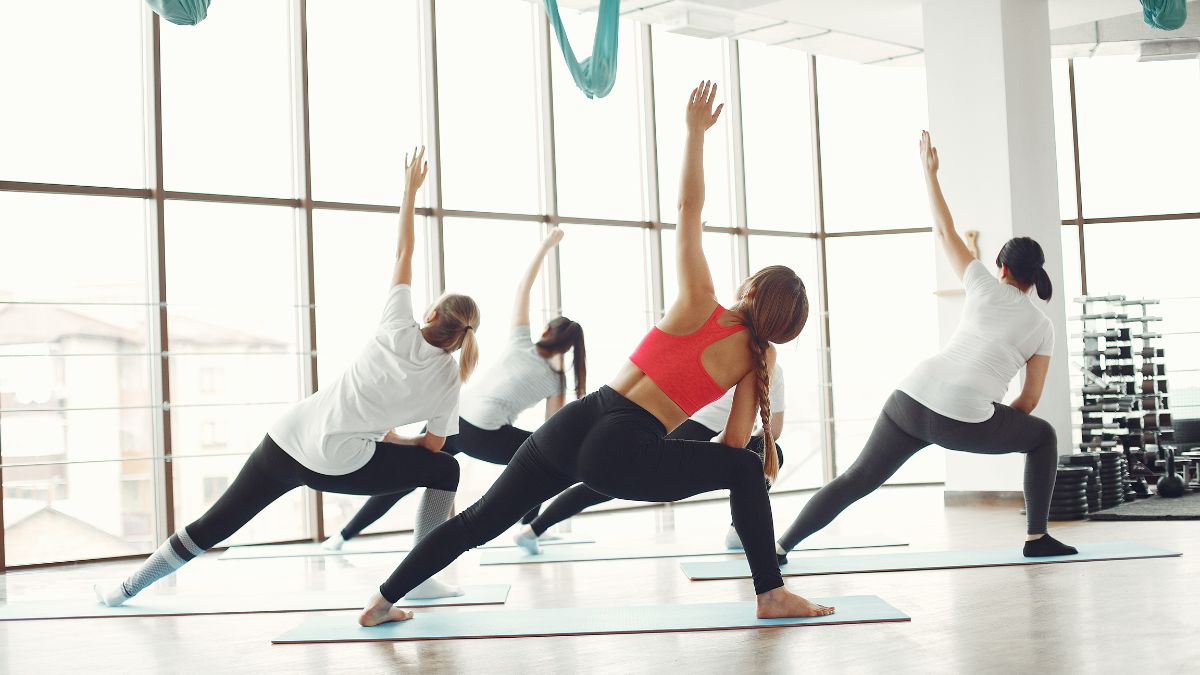- By Bornika Das
- Mon, 17 Mar 2025 03:32 PM (IST)
- Source:JND
Festivals bring joy, happiness, togetherness and, of course, the consumption of delicious foods. With a list of festivals happening one after the other, people are hardly getting time to recover and get back to their original schedule. Apart from gatherings with friends and family, we celebrate each and every festival by indulging in food. This tradition of celebrating festivals with food creates a sense of continuity and connection. Besides, food is a way to express gratitude and appreciation for the people in our lives. However, with so much eating and celebration, people find it extremely difficult to return to their original schedule, thus feeling festive blues. With certain tips, one can reset their body again and get back to their original schedule for a healthier self.
Fitness Recovery Tips
After a gala celebration, to get back to the original tract of life, it is important to practice light to heavy exercises to restore musculoskeletal and cardiovascular health. Here are some exercises you can do to beat the festive blues.
Light Jogging
Light jogging is considered to be an excellent recovery exercise. The low-intensity cardio workout helps reactive the cardiovascular system and promotes blood circulation. Practice 20-30 minutes of light jogging to flush out the toxins from the body accumulated during festivities and to boost metabolism and release feel-good hormones, that is endorphins.
Swimming
This is a full-body, low-impact exercise that aids in muscle recovery through gentle, supported movements. It enhances cardiovascular health while controlled breathing promotes deeper oxygen exchange, thus clearing the system and revitalising the lungs.
Yoga And Pilates
These two help fight post-festive sluggishness by restoring the nervous system and improving mental clarity. Yoga poses such as twists help in digestion and detoxification, meanwhile, breathing techniques help boost energy levels. Moreover, Pilates strengthens the core and improves flexibility.
Bodyweight Exercises
This type of exercise enables one to reset the musculoskeletal system without the need for intense training and equipment. Exercises such as squats help strengthen the lower body and improve hip mobility, lunges enhance single-leg stability and balance, push-ups and pull-ups improve the upper body posture, while planks reestablish core stability and full-body tension.

Light Exercise Helps Recover The Body After Festival (Image Credits: Canva)
Nutritional Recovery Tips
Apart from fitness, nutrition also plays a major role in post-festival recovery. Following a well-balanced diet and proper hydration are the main factors to detoxify the body and replenish essential nutrients. Here are some nutritional tips that you can follow post-festivity.
Hydration
Celebrations often lead to dehydration due to increased physical activities, improper diet and consumption of dehydrating beverages. Thus to replenish the body, it is essential to drink at least eight to ten glasses of water every day along with electrolyte-rich fluids. Include hydration from coconut water, homemade electrolyte drinks or simple water infused with a pinch of salt and lemon.
Sufficient Sleep
Rest is essential to recovery from festival blues. A good night's sleep of at least eight hours allows muscles to repair, regulates hunger hormones and strengthens immunity which may have been compromised after celebrations. Good sleep helps restore cognitive function and enhances overall well-being.
Balanced Diet
This is the most important part of nutritional recovery. After the celebration of the festival, one must indulge in a nutrient-dense, balanced diet that includes components like protein, antioxidants, fibre, complex carbohydrates, and vitamins and minerals.
ALSO READ: Post Holi Health Care: Detox Drinks To Consume After Celebrating The Festival
ALSO READ: Feeling Exhausted After Holi? 5 Tips To Cope With Festive Blues
(Disclaimer: This content including advice provides generic information only. It is in no way a substitute for qualified medical opinion. Always consult a specialist or your own doctor for more information)

